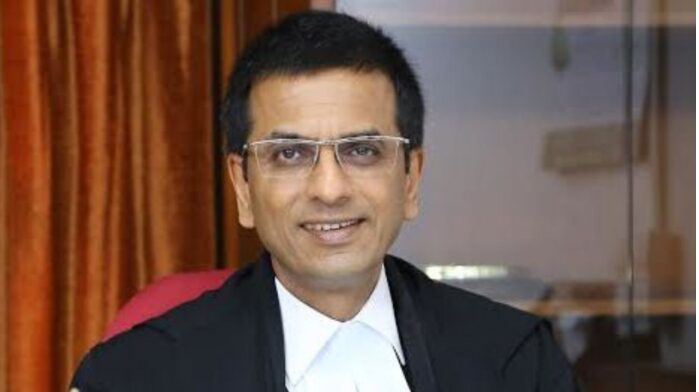Chief Justice of India (CJI) D.Y. Chandrachud on Saturday said that Judges were the ‘guardians’ of liberty of citizens living in this country, who did not differentiate between the cases coming before them and heard each argument with equal sincerity.
Delivering the memorial lecture on 90th birth anniversary of former Attorney General of India Ashok Desai, organised by the Bombay Bar Association in Mumbai, Justice Chandrachud said that every case that came before either the District Judiciary, a High Court or the Supreme Court, was important for Judges. He added that no case was big or small for the courts across the country.
Stating that the confidence of people, the due process of law and the protection of liberties rested on the shoulders of the Judiciary, the CJI observed that if the courts failed to protect the personal liberty of people and were not able to grant them relief, there was no purpose of their existence.
The CJI exemplified his point with a case that he had heard on Friday in which a person’s sentences for electricity theft in nine separate cases were running consecutively, not concurrently and said that if was an example of breach under Article 136.
During the hearing of this case before the Apex Court, Justice Chandrachud had observed that the Supreme Court existed to hear the cries of such petitioners, adding that the Judges burnt the midnight oil for such cases.
The top court of the country had allowed the appeal filed by the convict and directed that the sentences should run concurrently.
Speaking about honour killing, the CJI said that hundreds of young people die in India due to honour killings merely because they love someone or marry outside their caste or against their family’s wishes.
Citing an article that reported murder of a 15-year-old girl by her own parents in Uttar Pradesh in 1991, the CJI said that morality was a fluid concept, which varied from person to person.
He said the villagers accepted the crime. Their actions were acceptable and justified for them because they complied with the code of conduct of that society in which they lived.
The CJI then observed that the code of conduct of these villagers would not have been put forward by rational people.
Referring to the ‘negotiation of morality due to power difference,’ the CJI observed that morality was often dictated by dominant groups. He said the members of weaker and marginalised groups were forced to submit to dominant groups for their survival.
The dominant groups overpowered the weaker sections of the society and decided the code of conduct or morality. The vulnerable groups were placed at the bottom of the social structure and their consent, even if attained, was a myth, he added.
The vulnerable sections of the society were unable to generate a counter culture because of humiliation and separation at the hands of oppressor groups. Even if they developed a counter culture, the same was overpowered by government groups to further alienate them, he added.
Speaking about the Supreme Court order of September 6, 2018, which decriminalised homosexuality in the country by striking off Section 377 of Indian Penal Code, the CJI said that the verdict rectified injustice.
He said Section 377 of IPC was based on morality of a gone era. The Constitutional morality today focused on rights of individuals and protected it from popular morality notions of the society, added Justice Chandrachud.
The CJI further mentioned the September 27, 2018 verdict of the Apex Court, which struck down Section 497 of the IPC, decriminalising adultery.
He said the values of a progressive Constitution served as guiding force for the country, conveying that the personal and professional lives of the citizens were not divorced from the Constitution.
Terming the Constitution as the flag bearer of fundamental rights of citizens, which guided people in their daily lives, the CJI said the Indian Constitution was not designed for people as they were, but how they ought to be.


